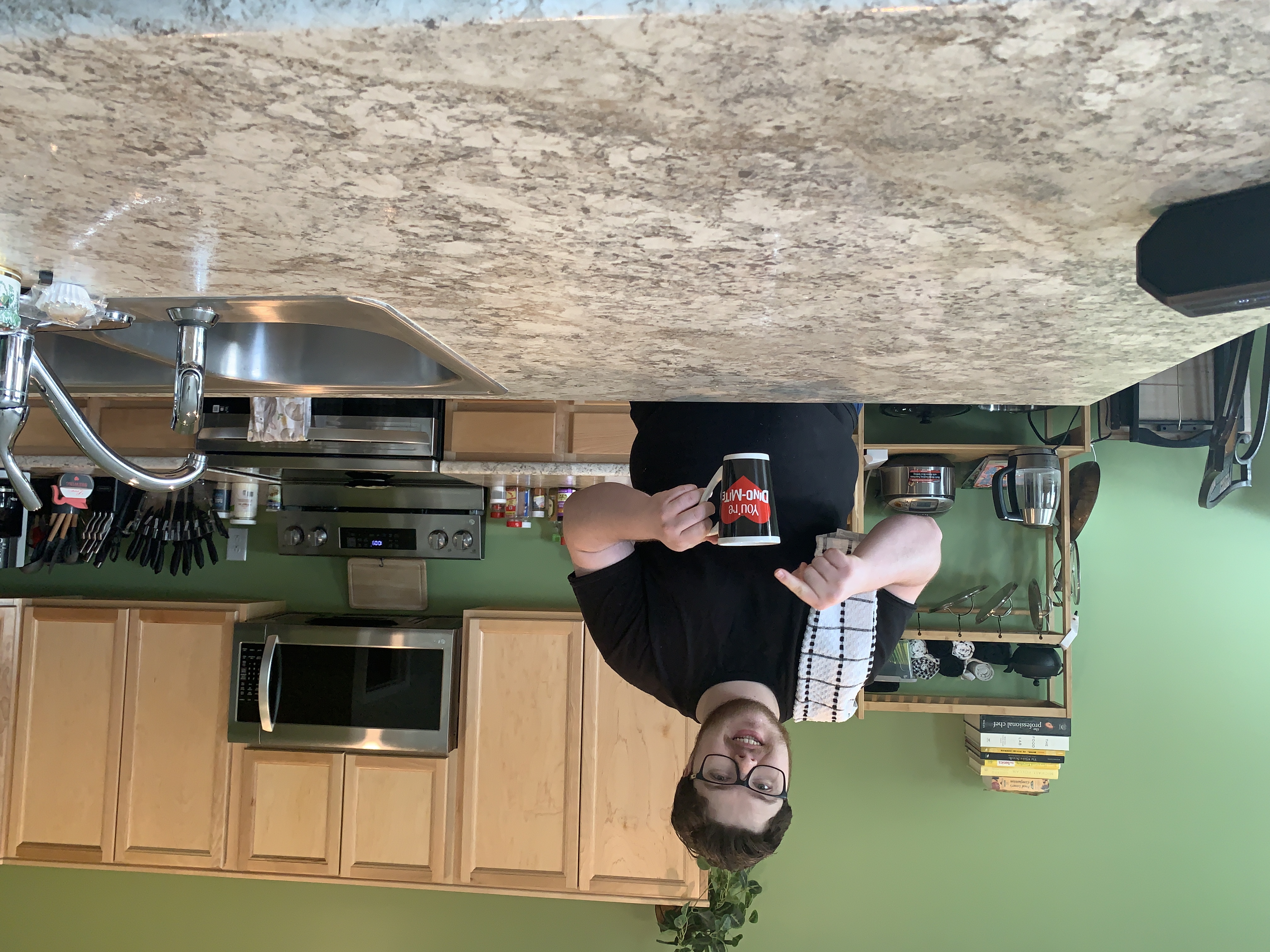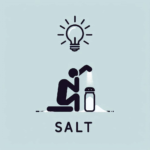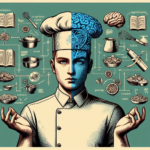Knowledge vs Technique: Which is more important
What is the difference between the two? Can you really have one without the other? Why are they so important? Is one more important than the other? These were questions that came to my mind when I had the astonishing revelation that knowledge really is key to making good food. I was reading about Salads in Salt Fat Acid Heath by Samin Nosrat (shocker), and her story about how she served a simple avocado salad that consisted of Blood Oranges, Avocado, Olive oil, and Salt to her yoga classmates, and mentioned how her classmates to this day (or at least up to the publication of her book) would still bring up this 4 ingredient salad to be= the best salads they’ve ever tasted. I can imagine why, it sounds incredible. And I definitely have bookmarked it for the future to make as a nice snack or a first course to a meal.
But it got me thinking, how can something so simple be considered the best thing you’ve ever tasted? It makes you think that Chef’s must have some magical secret for how they make something so simple taste so good. And in a way it’s true, it is magic, but it’s a magic everyone can harness if they put their minds to it. That is knowledge.
It was while reading this chapter that I came to the realization that chef’s don’t really have some huge secret to making good food. It’s simply just knowledge of food! Knowledge of ingredients, how different ingredients work together and what ingredients can work together to create a truly transformative experience in just one bite. That salad is incredibly simple but I don’t know if anyone other than someone with a comfortable knowledge about food, and specifically the importance of Salt Fat and Acid, would make such a simple dish. The blood orange provides a good source of acidity and sweetness, the avocado is creamy rich and fatty, the olive oil is another layer of fat and robust flavor that will enhance the flavors of the orange and the avocado. The salt being the perfect bit of seasoning to bring everything together and harmonizing with the other flavors to provide a perfectly satisfying bite.
It’s so simple, it’s genius, and that is the testament to the knowledge of food and cooking. The genius of simplicity. Without any one of those ingredients, the dish would not be nearly as good. Understanding the absolute fundamentals of what makes food taste good, like Salt Fat Acid Heat, is a great starting point in one’s culinary knowledge. Knowledge is what allows a cook to utilize a world of ingredients in such creative ways because they understand the fundamentals and how exactly each ingredient would improve or diminish a dish.
The truly interesting and inspiring thing about Samin’s anecdotal story about her world renowned Blood Orange Avocado Salad is that it is so incredibly simple, but in its simplicity, and from the the reaction of her many friends bringing up her dish that they could easily recreate at home to be the best salad they have ever had, is a true testament to the power that culinary knowledge can bring to your cooking and escalate even the simplest dishes into the stratosphere.
But what about technique? How does that play into a chef’s repertoire? Because knowledge is all and good, and a great starting point to making a good dish. And one could argue that using simple ingredients that don’t require a lot of technique, could still make a good dish. But there is still much to argue in favor of having proper technique in its own right that can make or break a dish.
For example, we can use the same Blood Orange Avocado Salad that we talked about with the importance of knowledge. Where does technique come into play? It takes technique to slice the oranges and avocados into their respective sizes in order to get the right amount of acidity, and fattiness and the right texture. Slice the oranges too thin, you don’t get much acidity or sweetness just a vaguely orange tasting pulp. Slice them too thick and the dish is a juicy pulpy acidic mess with a bit of avocado, olive oil and salt thrown in. Same with slicing avocados. Get it to the right texture and balance, you have to have the technical knowledge of how to slice the avocado, what size and shape will create the best texture and flavor. How much olive oil, and how much salt, when and where each ingredient should go into the dish to optimize flavor and texture. With technique, Samin’s salad still could have been good, but maybe there would have been too much avocado, and it drowned out the other flavors or it was drowning in olive oil, or too much salt. It was Samin’s masterful technique that allowed her to execute the vision of the dish to have a perfect balance of salt, fat, acid, and even heat (serving a dish cold is a choice and requires as much knowledge to understand when to apply heat and when not to apply heat).
Technique is often what people think about when it comes to the skills of a chef. Being able to slice, cut or chop things in perfect uniformity. Being able to control the heating of a dish, and utilizing various techniques, tricks and instruments in order to magically turn simple ingredients into an incredible experience of flavors and textures. And it goes without saying, that a chef without technique, can at most create a relatively well thought out dish in terms of flavor, but it is most likely going to be lacking balance and texture. Whereas a chef that only understands technique may cut, chop, slice, cook and blend everything perfectly into the best textures and consistencies possible, but the dish would not have a balance of flavor. It would be an uninspired mess or lacking in any depth other than maybe varying textures. Both can exist on their own and still have something impressive to show for it, but one without the other is nothing other than impressive mediocrity.
It’s no surprise that this post would end up where it is, the inevitable part of the versus storyline where both parties realize their energies are better served working together than against one another. But I don’t think it is reasonable to say that one is truly more important than the other. Because everyone who cooks has to have some understanding of both in order to create a good dish. But a mastery of both is where the truly awe inspiring dishes, no matter how simple, come from.
It’s even safe to say that technique is just an extension of culinary knowledge. That technique and food knowledge are one and the same. In some ways to say they are, because one without the other is almost not even a complete skill or ability. Or at least not an entirely useful one. You would, at the very least, need another person who specialized in the other skill in order to be able to make a complete dish.
Without knowledge of how ingredients work together and the technique to portion and prepare the food in its most appetizing form, Samin would be recalling the time where she almost made the perfect dish.
I think it’s safe to say there are times when cooking or preparing a dish where one is more useful than the other. I think in terms of the Blood Orange Avocado Salad, the understanding of the simple but quality ingredients combined together on a plate is all it took to make a delicious dish was a little more important than the size of slices, but the technique still played a factor in the execution of it.
I would also almost argue that there really isn’t such a thing as having an understanding of technique without culinary knowledge. Because one can only really begin executing more technically impressive dishes when one has a vast level of culinary knowledge. Whereas having a vast level of culinary technique with little culinary knowledge, isn’t really something I’ve heard of or really even sounds possible because when you are practicing technique you are also bound to also gain culinary knowledge at the same time. Someone can watch tons of cooking shows and read tons of books and know a lot about food without having cooked a single meal in their life. But most of the time, you aren’t going to gain much technical knowledge outside of a theory and receive demonstrations by merely observing, that is, unless you have an animus lying around and one of your ancestors was the head chef of the assassins organization.
Nerdiness aside,
\A big difference one might say is that Knowledge is food theory, and Technique is execution of said knowledge. But technique requires its own knowledge in its own right. It is an interesting topic that is very much important for an aspiring chef or home cook to explore when they are cooking their meal. Take stock of their knowledge and understanding of all the ingredients in their dish. How will or won’t they work together when combined, and how much do they understand about what techniques need to be used to execute that vision of the best combination of textures, flavors, and experience? What do you know? What don’t you know? How can you go about learning it? Studying can provide extra knowledge. Reading about the theory of flavor and technique is a great way to grasp the concept. But there is no substitute for actually picking up that knife and practicing what you learned. Cooking is all about practice. Even a seasoned chef, who has cooked a dish a thousand times can still learn something new by cooking a thousand and one times. Honing Knowledge, and honing technique are both great. But being able to use them both in tandem, then one day people will be still be gushing about your food, which to you might have been simple execution of your cooking knowledge and technique, but to them, you have done something magical, but maybe just maybe, magic isn’t so far out of reach as we thought. So long as you have the willingness to learn the right amount of knowledge and technique, creating culinary magic is right at your fingertips.



